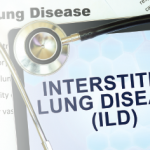 Systemic scleroderma (SSc) is “arguably the most challenging illness” rheumatologists encounter, according to Aryeh Fischer, MD, associate professor of medicine, Division of Rheumatology, Division of Pulmonary Sciences and Critical Care Medicine, at the University of Colorado School of Medicine in Denver.
Systemic scleroderma (SSc) is “arguably the most challenging illness” rheumatologists encounter, according to Aryeh Fischer, MD, associate professor of medicine, Division of Rheumatology, Division of Pulmonary Sciences and Critical Care Medicine, at the University of Colorado School of Medicine in Denver.
Dr. Fischer, who served as a co-investigator in the Scleroderma Lung Study II (SLS II), expects “significant expansion” of therapeutic options in the coming years.1 He spoke to The Rheumatologist about the results of the study, which were published as an abstract at the 2015 ACR/ARHP Annual Meeting.
Question: What is the biggest challenge interstitial lung disease (ILD) poses in SSc patients?
Answer: The ILD portion in SSc is particularly challenging in that available therapies are so limited. Even with treatment, the best we have to offer is stability or [the] mild improvement of ILD.
Q: What are your initial thoughts on the study results?
A: This study validated current clinical practice and gave stronger support for the use of mycophenolate mofetil (MMF) for the treatment of SSc-ILD. SLS I showed that oral cyclophosphamide (CYC) can mildly improve lung function and CT-evidence of fibrosis, and is associated with improved [quality of life].2 But CYC is not a long-term option and is often not well tolerated. Based on a growing body of retrospective data, clinical practice patterns have changed over the past five or so years. MMF has replaced CYC in many centers or is, at least, a very common first-line agent for autoimmune ILD, in general, and SSc-ILD, in particular. With [the] SLS II results, we now have more robust evidence to substantiate that practice pattern. I suspect this will lead only to more use of MMF as first-line therapy in autoimmune ILD, in general, and SSc-ILD in particular.
Q: The study abstract cites a number of conclusions. Which are most practical for clinicians?
A: The most relevant to me are that:
- MMF is as effective as CYC for SSc-ILD;
- MMF is far better tolerated than CYC;
- MMF is a good long-term option; and
- CYC is an effective agent for SSc-ILD, but is limited to short-term usage.
Q: Any other links between the first and second studies?
A: Both studies prove that CYC is an effective drug for this disease. In practice, because many practitioners prefer the IV route due to a better safety profile, CYC remains a good—albeit a shorter-term—option for this disease.
Q: Why is it important to look at these treatments?
A: SLS I and II, and the FAST study have been landmark trials because they are the first to successfully implement randomized, placebo-controlled—except for SLS II—trials looking to establish whether current options are effective for this disease.3 Ultimately, we need to explore novel, therapeutic options in this domain. Fortunately, those studies are underway in various phases, and without question, many more are to follow.

